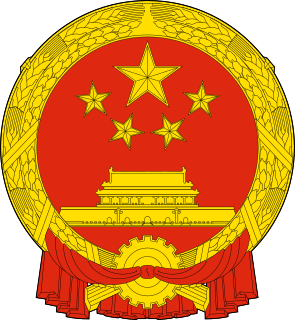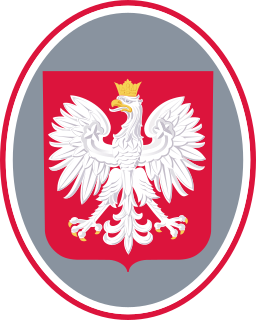Minister of Labour or Labor is typically a cabinet-level position with portfolio responsibility for setting national labour standards, labour dispute mechanisms, employment, workforce participation, training and social security.
Education in Colombia includes nursery school, elementary school, high school, technical instruction and university education.

The Ministry of Labor and Social Justice of Romania is one of the fifteen ministries of the Government of Romania.
Ministry of Employment may refer to:

Within Peru, human rights are protected under the Constitution. The Peruvian Constitution underscores the importance of the state to preserve the dignity of all human beings. The Constitution includes articles that promote the right to self-determination, equality and non-discrimination, and life. Ever since the end of the internal conflict that occurred in Peru from 1980-2000, the country has worked to integrate humanitarian regulations and statuses into national law. However, there are still instances of particular rights being challenged. The 2014 Human Rights Report by the United States Department of State explains how even with the Constitution protecting these basic human rights, many violations continue to occur despite these laws. Also, in spite of the country’s progress since the Maoist insurgency, many problems are still visible and show the continued marginalization and displacement of those who suffered through the systematic violence of the Peruvian conflict. In 2001, the Truth and Reconciliation Commission was founded to address the abuses that took place during this conflict.

Ministry of Human Resources and Social Security (MOHRSS) of the Government of the People's Republic of China is a ministry under the State Council which is responsible for national labor policies, standards, regulations and managing the national social security. This includes labor force management, labor relationship readjustment, social insurance management and legal construction of labor. The State Bureau of Civil Servants reports to the new ministry.
The Ministry of Labor, Social Affairs and Social Services is the branch of government charged with overseeing employment and ensuring the welfare of the public in Israel and oversee the supply of services. The current Minister is Haim Katz.

South Korea's Ministry of Employment and Labor is a cabinet-level ministry overseeing labor affairs. Its predecessor agency, the Division of Labor, was established under the direction of the Minister of Social Affairs (사회부장관) on 11 November 1948. It was upgraded to a cabinet ministry on 8 April 1981.
The Labour Law of the People's Republic of China, is a law of China which has been enforced since 1995. It was promulgated by the Standing Committee of the National People's Congress of China on July 5, 1994, and came into effect on January 1, 1995.

The Ministry of Social Policy of Ukraine, formerly the Ministry of Labor and Social Policy, is the Ukrainian government department responsible for instituting labor relations, family and children, immigration and trafficking, women's rights, children's rights, and humanitarian aid.

Ministry of Family, Labour and Social Policy of the Republic of Poland was formed in 2005 to administer issues related to labour and social policy of Poland. It was named Ministry of Labour and Social Policy until late 2015 when it was renamed to Ministry of Family, Labour and Social Policy.

The Minister of Labor, Employment and Social Security is a ministry in the Burmese government responsible for the country's labour welfare and renders services to employers and workers.

Ministry of Social Security or Department of Social Security is the government entity responsible for social security affairs. It may be a ministry office, a department, or, as in the United States, a nominally independent agency.
The Ministry of Labour, Employment, Veteran and Social Policy of the Republic of Serbia is the ministry in the Government of Serbia. The current minister is Zoran Đorđević, in office since 29 June 2017.
The Peruvian State, which is conceptually the Peruvian nation legally organized, is the entity that holds the government in the Republic of Peru. The state's structure is defined in the Constitution of Peru approved by referendum and promulgated in late 1993 and in force since January 1, 1994.
The Ministry of Labour (UK), or Labor (US), also known as the Department of Labour, or Labor, is a government department responsible for setting national labour standards, labour dispute mechanisms, employment, workforce participation, training, and social security.

The Ministry of Labour, Employment and Social Security is a government ministry of Nepal that governs the development policies of labour and employment in the country.
Susana Isabel Pinilla Cisneros is a Peruvian anthropologist and politician. She has served as Minister of Labor and Promotion of Employment, Women’s and Social Development Minister, and as CAF Country Director. She has an anthropology degree from National University of San Marcos and a Masters in "Governance and Public Policy" from the Universidad de San Martín de Porres.

Ethel Ana del Rosario Jara Velásquez is a Peruvian lawyer and politician who was Prime Minister of Peru from July 2014 until April 2015.
Peruvians with disabilities constitute 5.2% of the population. 52.1% of disabled people are women. 40.5% of disabled Peruvians have a primary or better education. 76.8% are not economically active they have an unemployment rate of 12.1%. Of those Peruvians with disabilities who do work, 58.3% are self-employed.











